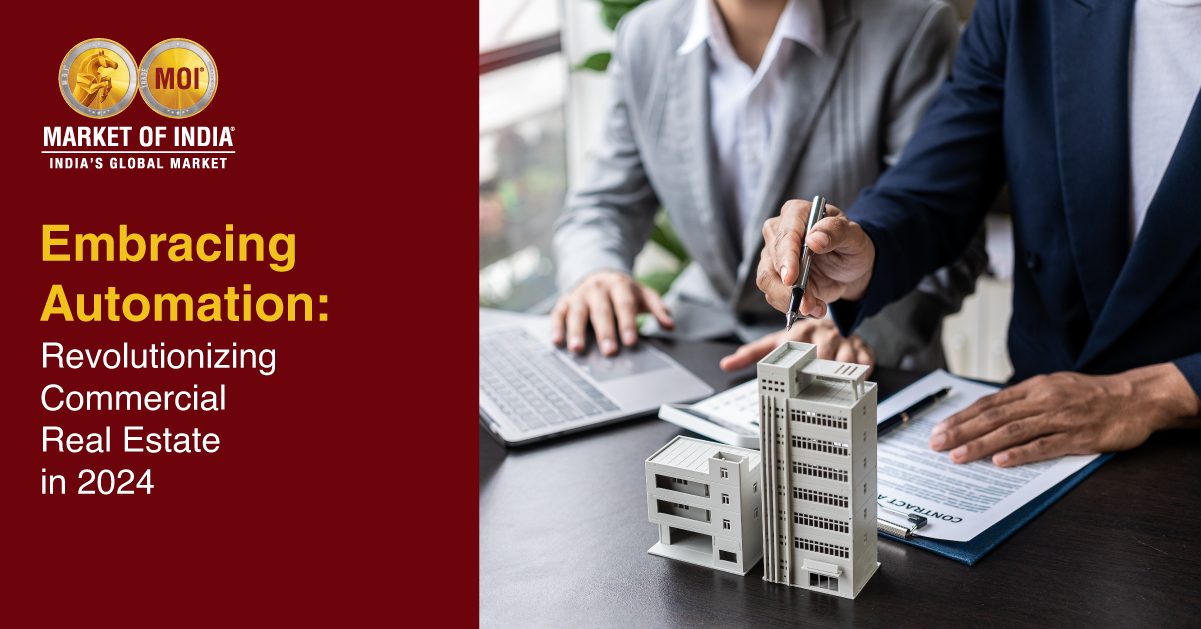
Blog summary:
Are you thinking of investing in real estate? Before you go on to actually make the investment, there are a few essential real estate terms you should be aware of. This blog will discuss 21 important real estate terms you should know before investing. Read on to learn more!
Are you planning to invest in real estate?
If you have decided to invest in real estate, take it from us, you have made a great choice! Real estate investing is one of the safest forms of investment you can make, given how secure and fruitful they are in the long run.
Real estate properties are the most valuable form of investment as they have the potential to appreciate and not deter even when the market is extremely volatile. They help you build substantial equity over time while also helping you maintain a steady and consistent cash flow.
So, if you have decided to invest in real estate, you have made the right decision. Investing in real estate is a huge decision and involves a lot of research and care. As you move further into the investment process, you will come across many real estate terms that would be alien to you. But don’t worry! We have got you covered!
In this blog, we will discuss 21 essential real estate terms you should know before investing in the property.
21 Real Estate Terms You Must Know Before Investing
Real estate is technical in nature – if you are a first-time investor, it is only natural to be lost in a trail of technical real estate terms. And as an investor, you cannot ignore these terms. So, before you make the investment in the property of your choice, go through the following real estate terms and get your real estate knowledge supercharged. Let’s get started with your real estate dictionary!
1. Carpet Area
Carpet area is one of the most important real estate terms you must understand while looking at properties to invest in. It is nothing but the area of the property that can be covered with a carpet. This means, it is the net usable area of a property, i.e., the total area you can put to full, substantial use within a property. A property’s carpet area usually makes up 70% of the built-up area, which we will discuss next.
2. Built-up Area
Built-up area and carpet area are two real estate terms that are usually confused with each other. We have already understood what the carpet area is. The built-up area is the carpet area, and the area is covered by walls put together. The built-up area of a property is usually 1–15 percent more than the carpet area since we are taking into account the area covered by the walls of the property.
3. Super built-up area
Super built-up area is one of the real estate terms that is essential for you to know. It is simply the carpet area, the area covered by walls, and other common areas properties put together. These common areas may include areas covered by the entrance of the property, lobby, parking, and more, as well as the common area around the property.
4. Encumbrance Certificate
An encumbrance certificate is a certificate of free ownership or ownership. It tells you if the property is free and clear of legal or monetary dues. This is one of the most important real estate terms you must be aware of. You can get the encumbrance certificate of property by placing a request at the sub-registrar’s office. This is an important certificate that is proof that the property does not have any issues concerning the ownership.
5. Title deed
A title deed, another one of the real estate terms you should know, is a document that proves ownership of the property. So, when you invest in a property, make sure the name on the title deed matches the name of the owner. Pro tip – ALWAYS make sure you ask to see the original title deed and not the xerox copy of the same.
6. Capital gains
Capital gain is the profit you make out of selling a capital asset. Capital assets are valuable pieces of assets that include property, cars, investment property, stocks, bonds, and today, even collectibles and art. Note that taxes are applicable on these capital gains once the indexation (re-calculation of the purchase price, after adjustment for inflation index) is done.
7. Sale deed
This is one of the significant real estate terms you must know of while making an investment. It is a document that legally records that the event of the sale. Signed by both the seller and the buyer, it is one of the most important legal documents – only with this document is the sale assumed to have happened legally.
8. Net Operating Income (NOI)
This is one of the most used commercial real estate terms. Net Operating Income (NOI) is the income you generate annually from your commercial property after subtracting the operating expenses. You need to know this concept if you are looking to invest in commercial real estate.
9. Return On Investment (ROI)
One of the most commonly used commercial real estate terms, Return On Investment (ROI), is the percentile measure of the profit made out of commercial property in real estate. This metric determines how profitable your property is.
Before you invest in a property, it is recommended to do your research and calculate the ROI, check your feasibility, and see if the calculated ROI is part of your investment objectives.
10. Cash on Cash Returns (CoC)
Cash on Cash Returns (CoC) is one of the easily understandable real estate terms used in commercial real estate investment. It measures the ratio between a property’s annual income (in cash) and the down payment done on the property. Simply put, CoC is the cash earned on the cash invested in the property.
11. Capitalisation rate
As a real estate investor, the capitalisation rate is one of the most important real estate terms you must be familiar with. Popularly known as cap rate, it is used to calculate the expected rate of return on the property. It indicates the potential Return On Investment of a property in the real estate market.
12. Real Estate Investment Trust – REIT
Real Estate Investment Trust is a corporate body that owns, finances, and operates income-producing assets. If you are a commercial real estate investor, this is one of the most important real estate terms you must know about. Their function is similar to that of stocks, as they invite investors to buy commercial properties that offer substantial returns.
13. Classes A, B, C, and D – Classification of buildings
Being a commercial real estate investor, you must know the building classifications that should make it to your dictionary of commercial real estate terms. Commercial buildings are usually classified into classes A, B, C, and D.
Building classification is done based on the value of the asset – class A buildings are those properties that or of the highest value. These properties usually garner the highest rental returns. Buildings that fall under classes B, C, and D are lesser in terms of asset value due to their less appealing amenities, features, locations, and more.
14. Central Business District (CBD)
Now, this is one of the real estate terms you will repeatedly come across if you are a commercial real estate investor. A term that is widely used in the field of commercial real estate, Central Business District (CBD) is the term used to describe the business hub of a city. CBDs are usually the busiest commercial regions in a city, where trade thrives.
So, if you own a commercial property in a Central Business District, you will be seeing a lot more income and returns on your property.
15. Full-service rental rate
Full-service rental rate is the rate of rent charged for a commercial property, inclusive of its operating expenses. Operating expenses usually involve maintenance charges, electricity, taxes, insurance, utilities, and more.
16. Stamp duty
In real estate, stamp duty is the tax collected by the government. The percentage of stamp duty taxes payable will differ from one state to another, and this is one of the most used real estate terms today. The stamp duty payable ranges from 3% and can go on to even 8% in some cases.
17. Conveyance deed
A conveyance deed is a document that is used for the transfer of ownership. The transfer of ownership through conveyance deed can take place either as a gift, mortgage, lease, or exchange, and more. This is one of the most important real estate terms you must be aware of while investing in a real estate property.
18. Ready reckoner rates
“Ready reckoner” is one of the common real estate terms you would have come across in the process of making an investment. For every area, the government defines the basic price for properties that lie within that area’s limits. These are ready reckoner rates, and the minimum registration and stamp duty charges must stick to this value.
19. Floor Space Index (FSI)
The Floor Space Index (FSI) of an area says how much construction can be carried out on a plot of land. For example, if the FSI of an area is 4 and you own a plot of land that is 850 sq. ft., you can legally build (850 x 4) 3,400 sq. ft. of building on the land parcel. Whether you are investing in a plot or a building, it is essential to get the FSI of the asset checked.
20. Power of Attorney (PoA)
This is one of the real estate terms you must know, especially today, in order to escape fraudulence. It was common for NRIs to sell their property through Power of Attorney, which is basically carrying out the transfer of ownership by appointing a representative in their place. This representative is the Power of Attorney.
However, today, the sale of property through Power of Attorney has been deemed invalid by the Supreme Court. The law passed says that the usage of PoA should strictly stick to genuine transactions and not for the transfer of title or rights to someone else. (Source). So, be sure to not get fooled in your investment process.
21. Debt coverage ratio
The debt coverage ratio is one of the real estate terms that compare the Net Operating Income of commercial property with the impending debt on it. If you are planning to take a loan, know that lenders usually use this metric to check if you will be able to generate enough income to pay your debts off.
These are some of the most important real estate terms that you must know if you are investing in a property. While some of the terms discussed in this article deal with commercial real estate, most of them are common real estate terms you will come across when you get into the investment process.
Let’s talk about commercial real estate, which is one of the best types of real estate investment, especially in terms of consistent returns and gains. If you are looking to buy commercial real estate, consider investing in a shop at Market of India. Market of India is India’s largest wholesale and retail marketplace responsible for streamlining Chennai’s trade processes.
Read on to learn more about what Market of India has to offer its traders.
Market of India – India’s largest wholesale and retail marketplace
Headquartered in Chennai, within SPR City, Market of India, being the largest wholesale and retail marketplace, offers an array of commercial spaces to invest in, including retail and wholesale shops, commercial and office spaces, and more.
What makes Market of India stand out as the most organised trade hub in Chennai?
Market of India is a vast space, with infrastructure that stands unmatched:
- 60,00,000 sq. ft. of built-up area
- 60,000 sq. ft. of Atrium area
- 18 kilometres of trade corridors
- 1,00,000 sq. ft. of Central Plaza
- Shops between 180 – 60,000 sq. ft.
- 9 markets
- 5000+ shops
- 1,00,000+ commodities
- 50+ trades
- 20+ ancillaries
2. The following are some of the facilities provided by Market of India:
- 150+ Class A Retail & Office Space (in Phase 1)
- SPR City’s central position makes it easy to get to from anywhere
- The first compact Class A office configuration in Chennai
- 24-hour sophisticated 3-tier security
- Professionally managed and technology-enabled facility
- Exclusive access to leisure facilities, gym, and indoor gaming
3. An audit conducted by Market of India and an established firm expects a monthly footfall of 40,00,000, which is 40,00,000 potential customers.
4. Take your business to the global arena through Market of India’s Chamber of Commerce, which provides you with the opportunity to conduct trade with international traders and logistics partners.
5. Go digital with Market of India’s online selling platform that accommodates over 1,00,000 commodities.
If you are looking to invest in a commercial space in Chennai, reach out to us at Market of India. Shops start from Rs. 40 lakhs!








0 Comments